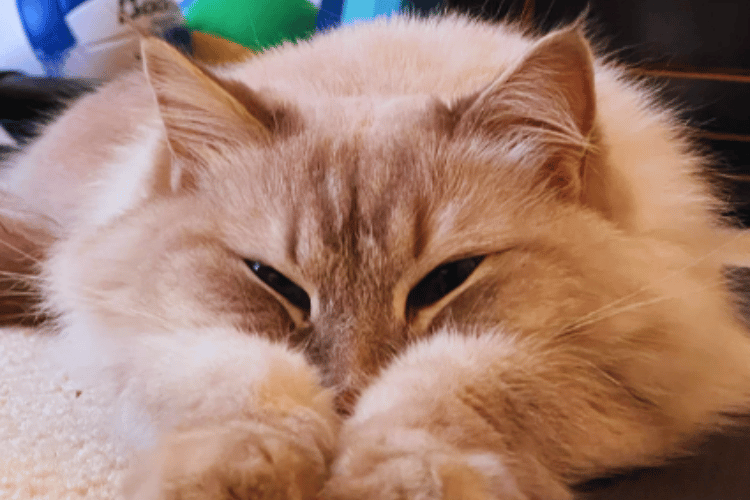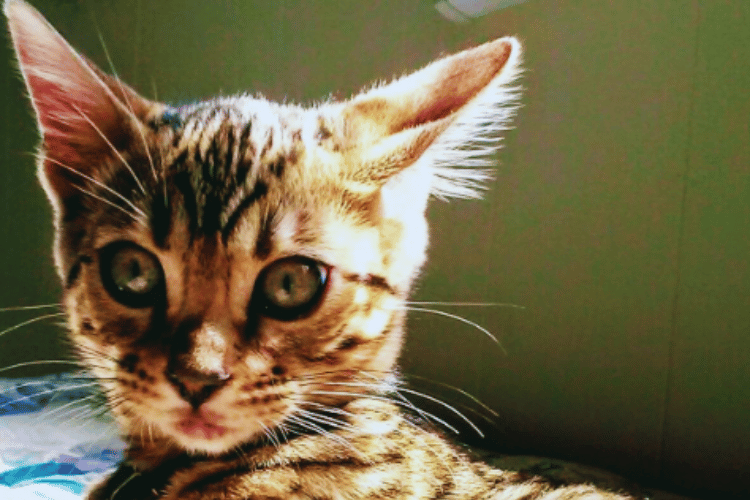Are you a cat lover looking to treat your furry friend to something special? The good news is that salmon oil might just be the perfect option! Not only is it packed with essential vitamins and minerals, but salmon-based supplements are also known for their delicious flavor.
But before you run out and get some for your kitty companion, read on to learn more about whether or not salmon oil is okay for cats.

The Benefits and Risks of Feeding Your Cat Salmon Oil
As a cat owner, you want to ensure that your feline friend is healthy and happy. One way to achieve this is by feeding your cat the right kind of food that contains essential nutrients and vitamins. A popular supplement for cats (and humans) is salmon oil, but is it safe to give your cat this oil, and what are the potential benefits or risks?
This article aims to answer these questions and provide you with a better understanding of the pros and cons of feeding your cat salmon oil.
Firstly, let's start with the benefits of salmon oil for cats. Salmon oil is made from the fat of fresh salmon, and it's rich in omega-3 fatty acids, which have been shown to have numerous health benefits for pets.
Omega-3 fatty acids can help improve your cat's skin and coat health by reducing dandruff, dry skin, and excessive shedding. It can also aid in joint mobility and reduce inflammation, making it an excellent supplement for older cats with arthritis.
Moreover, salmon oil can assist with your cat's overall well-being by helping to improve their immune system, heart function, and brain health. Studies have shown that omega-3 fatty acids can aid in brain development and cognitive function in cats, making it an ideal supplement for kittens and senior cats.
On the other hand, there are risks associated with feeding your cat salmon oil. If your cat is allergic to fish, they may have an adverse reaction to the oil, which can lead to vomiting, diarrhea, or itching.
Additionally, salmon oil can contain trace amounts of mercury, which can negatively affect a cat’s nervous system if consumed in large amounts over time.

Furthermore, if you choose to feed your cat salmon oil, it's essential to find a high-quality product that is specifically made for cats. It's best to avoid giving your cat human-grade salmon oil as it may contain additives that can be harmful to your cat's health.
Another consideration when feeding your cat salmon oil is the appropriate dosage. It's crucial to follow the recommended dosage based on your cat's weight to avoid over-supplementing, which can lead to digestive issues.
In conclusion, salmon oil can provide several health benefits for cats but also has potential risks that must be considered. If you decide to give your cat salmon oil, seek advice from your veterinarian and ensure that you choose a high-quality product that is formulated for cats.
The appropriate dosage is also crucial to avoid any harmful side effects. Remember, a healthy cat is a happy cat, so always prioritize their well-being by providing them with the right food, supplements, and care they need.
FAQs about the Use of Salmon Oil for Cats
Do you have a feline friend that you want to make sure is healthy and happy? If so, learning how to care for your pet properly can be a great first step. One issue many cat owners face is determining whether or not it’s safe to give their cats salmon oil.
This section will answer the most frequently asked questions about administering salmon oil to cats—so if you’ve ever wondered if this supplement would benefit your pal, keep on reading!
Is salmon oil safe for cats?
Salmon oil is generally considered safe for cats when used in appropriate amounts. However, it's important to consult with your veterinarian before adding any new supplement to your cat's diet. They can evaluate your cat's specific needs and advise you on the correct dosage and frequency of salmon oil use.
Can I give my cat salmon oil intended for human consumption?
It is not recommended to give your cat salmon oil that is specifically meant for human consumption. Human-grade salmon oil may contain additives or preservatives that are not suitable for feline consumption. Additionally, the dosage and concentration of nutrients may differ between products made for humans and those formulated specifically for cats. To ensure your cat's safety and well-being, it's best to choose a high-quality salmon oil supplement made specifically for cats.
What are the benefits of salmon oil for cats?
Salmon oil can have several potential benefits for cats. It is rich in omega-3 fatty acids, which can support a healthy coat and skin, aid in joint health, promote cognitive function, and help reduce inflammation. Omega-3 fatty acids also have potential cardiovascular benefits for cats. However, it's important to note that individual results may vary, and not all cats may experience the same benefits from salmon oil supplementation.
How much salmon oil should I give my cat?
The appropriate dosage of salmon oil for cats can vary depending on various factors, such as your cat's weight, overall health, and any underlying medical conditions. It is crucial to consult with your veterinarian to determine the correct dosage for your cat. In general, starting with a low dose and gradually increasing it while monitoring your cat's response is advisable. Your vet will be able to guide you in finding the optimal dosage for your furry friend.
Are there any potential side effects of salmon oil for cats?
While salmon oil is generally safe for cats, some individuals may experience gastrointestinal upset such as diarrhea or vomiting. If you notice any adverse reactions after giving your cat salmon oil, it's important to discontinue use and consult with your veterinarian. Additionally, it's worth noting that excessive consumption of salmon oil can lead to an imbalance in fatty acids, so it's crucial to follow the recommended dosage guidelines provided by your vet.
In conclusion, determining whether salmon oil is okay for cats or not can be a tricky endeavor. To minimize any potential issues and ensure your cat's health, it is best to consult with your veterinarian before introducing salmon oil into their diet.

Even if it is declared safe by a professional, pay close attention to how the oil affects your cat before increasing consumption. If your cat experiences a negative reaction, discontinue use immediately.
While most cats gravitate to the taste of salmon oil, don’t forget that they need regular brushing as well to clean up tangled fur and get rid of excess hair. Keep in mind to also check their coat every once in a while for dandruff and other skin irritations.
With these tips in mind, salmon oil should make for an excellent addition to your cat’s diet and grooming regimen—properly supervised of course!
So take some time to talk with your vet about salmon oil and help keep your pet happy and free from any unnecessary risks.
Thank you for visiting LegitLists we hope this helps you make a legitimate choice!






